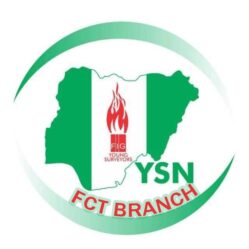21 Century represents a new era of human history, marked by unprecedented technological advancements, global connectivity and complex challenges.
Surveying matters to human existence. Our communities are developing at rapid rate.
Surveying needs to be taught based on the 21st Century technological advancements to solve complex problems.
With the digital age, there has been a widespread use of digital technologies leading to innovative solutions and disruption of industries.
➡️ A 21st-century surveying curriculum in a tertiary institution should reflect the latest trends, technologies, and industry requirements.
These are currently the Mandatory Core Courses been taught
1. Surveying Fundamentals: Introduction to surveying, measurement techniques, and mapping.
2. Geodesy and Geophysics: Study of the Earth’s shape, size, and gravity field.
3. Mathematics for Surveying: Mathematical concepts and techniques applied to surveying.
4. Physics for Surveying: Physical principles and concepts relevant to surveying.
Course that should be included
5. Computer Programming for Surveying: Introduction to programming languages and software used in surveying.
Then Specialized Courses such as:
1. Geographic Information Systems (GIS): Study of GIS principles, software, and applications.
2. Remote Sensing and Photogrammetry: Principles and techniques of remote sensing and photogrammetry.
3. Surveying Software and Technology: Study of surveying software, hardware, and emerging technologies.
4. Land Administration and Management: Principles and practices of land administration, management, and policy.
5. Surveying Law and Ethics: Study of laws, regulations, and ethics governing surveying practice.
Real life practical and Elective Courses on;
1. Unmanned Aerial Vehicles (UAVs) and Surveying: Applications of UAVs in surveying.
2. Building Information Modeling (BIM) and Surveying: Integration of surveying data with BIM along with Softwares
3. Machine Learning and Artificial Intelligence in Surveying: Applications of ML and AI in surveying.
4. Surveying for Environmental Monitoring: Applications of surveying in environmental monitoring and management model towards climate change and warming.
5. Disaster Response and Recovery: Role of surveying in disaster response and recovery.
Practical and Research Components:
1. Fieldwork and Practical Exercises: Hands-on experience with surveying equipment and software.
2. Research Projects: Students conduct research projects on selected topics, applying theoretical knowledge to real-world problems.
3. Internships and Industry Partnerships: Collaborations with industry partners, providing students with practical experience and exposure to industry trends.
Assessment and Evaluation:
1. Written Exams: Assessing theoretical knowledge.
2. Practical Exams: Assessing practical skills.
3. Project-Based Assessments: Evaluating research projects and practical applications.
4. Peer Review and Feedback: Encouraging critical thinking, communication, and teamwork.
5. Oral Assessment and Communication Skills:
These are the skills a student Surveyor must possess before graduating from the university to enable them speak eloquently and convince prospective clients.
This provides a comprehensive foundation in surveying, while also incorporating emerging technologies, trends, and industry requirements.
For Enquiry,
Email: ysnfctabuja@gmail.com
website:
www.youngsurveyorsnetworkfct.ng
Signed:✍️
a. Surv. Uju O. IZUEGBU, MNIS
Chair: YSN FCT
b. Moyinoluwa OLAJIDE
Head: Education Committee YSN-FCT
Announcer:
c. Surv. AKINPELU Oluwaseun Sherif MNIS
Secretary: YSN-FCT
Member: Education Committee YSN-FCT


